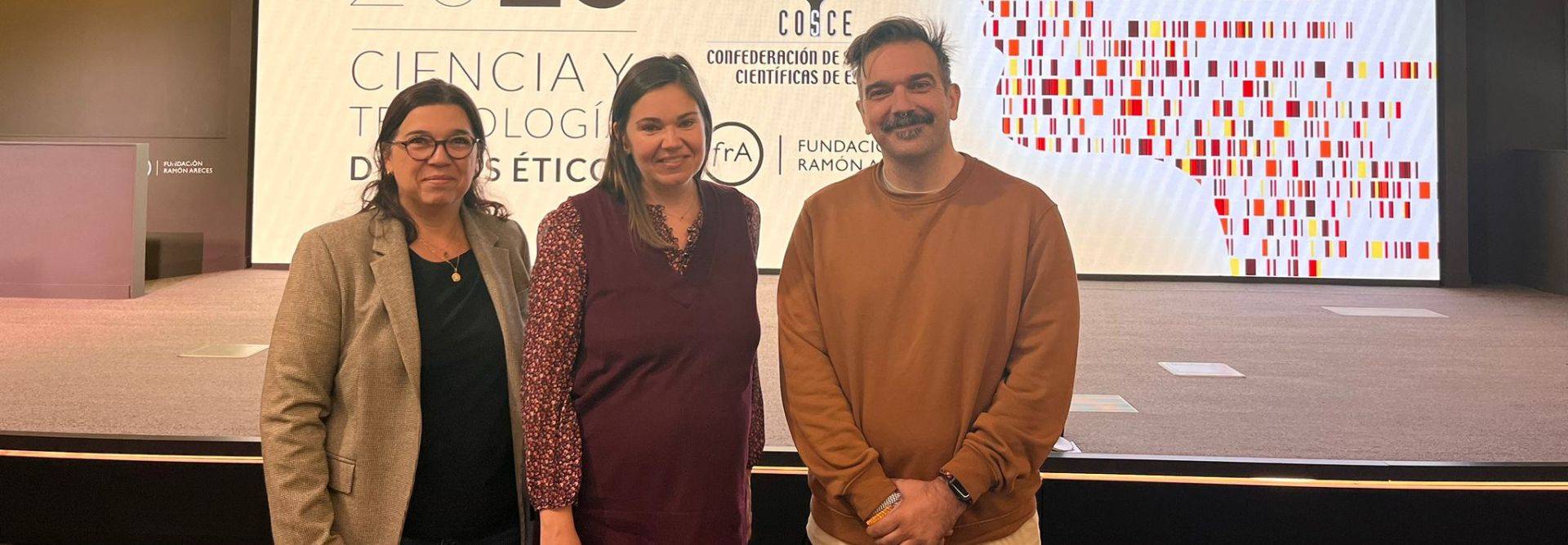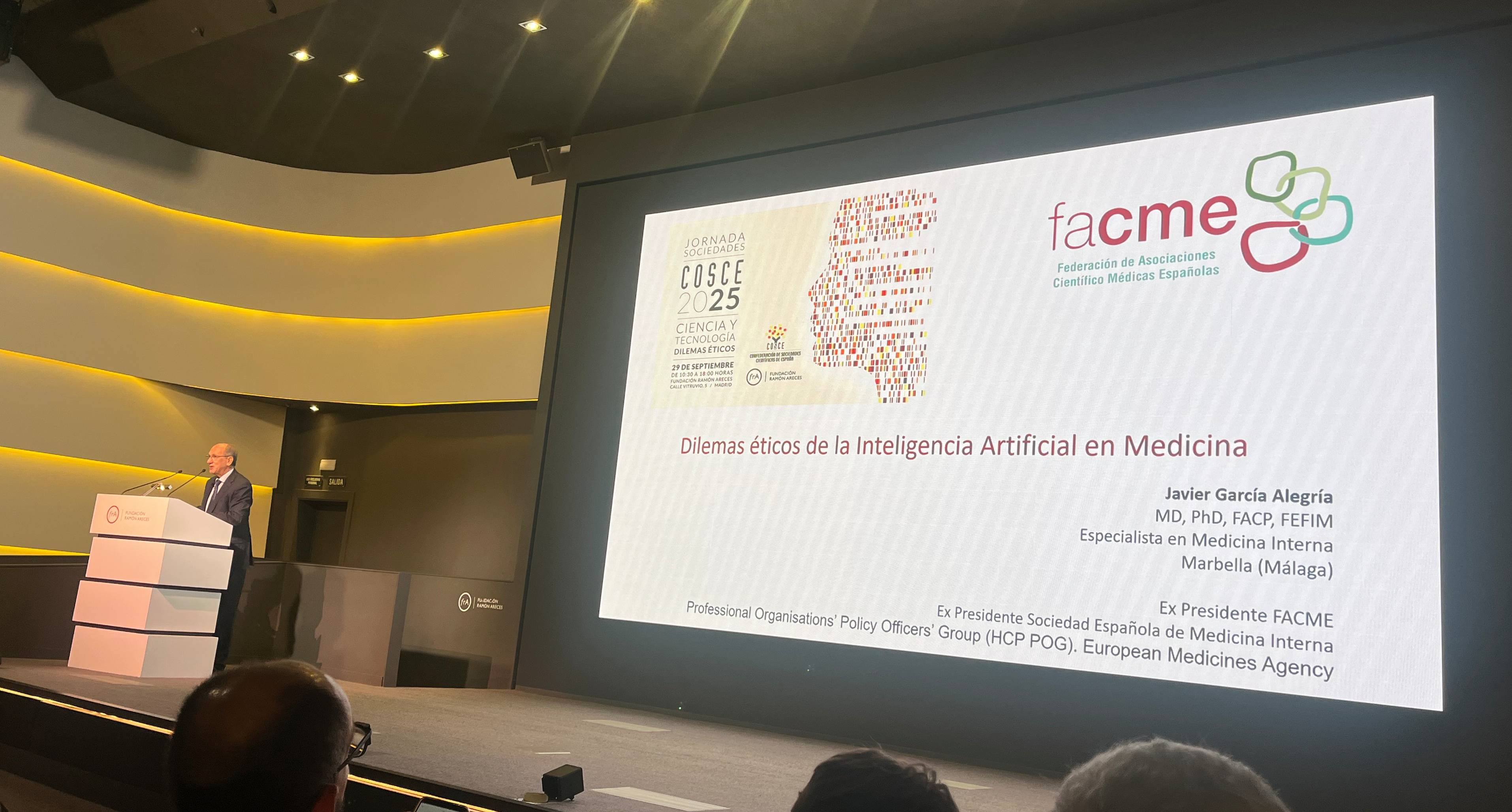UDIT reaffirms its ethical commitment by participating in the Conference on Ethical Dilemmas in Science and Technology
The Vice-Rectorate for Research strengthens its critical stance together with international experts and government representatives.
Researchers from the University of Design, Innovation and Technology (UDIT) attended the Conference on Ethical Dilemmas in Science and Technology, organised by the Confederation of Spanish Scientific Societies (COSCE). The meeting brought together specialists from leading international institutions, consolidating itself as a key forum for debating the ethical challenges of contemporary science.
UDIT was represented by Dr. María Beltrán, member of the Research Ethics Committee and principal investigator of the NEURO-COLAB group, together with Dr. Ivette Caldelas and Dr. Alejandro Martínez, also researchers of the same group.
Their participation is part of the institutional objective of strengthening the capacities of the research area and the recently constituted Research Ethics Committee (April this year). This commitment seeks not only to enhance the ethical evaluation of projects, but also to foster an academic community that is more aware of the axiological challenges arising from scientific and technological advances.
The conference featured high-level academic presentations. Among them was the intervention of Álvaro Pascual-Leone, professor of neurology at Harvard Medical School and director of the Center for Non-Invasive Brain Stimulation at Beth Israel Deaconess Medical Center (Boston), who addressed the challenges of neurotechnology and artificial intelligence in brain health.
Other participants included Javier García Alegría, Director of the Internal Medicine Department at the Hospital Costa del Sol in Marbella, who reflected on the ethical dilemmas of AI in medicine; Pedro Rey Biel, Professor of Behavioural Economics at ESADE Business School, who analysed social experimentation and the use of administrative data in public policy; and Íñigo de Miguel, researcher at the University of the Basque Country, who discussed the balance between individual rights and collective needs in the use of health data.
The bioethical perspective was reinforced by the intervention of Carmen Ayuso García, head of the Clinical Genetics Service of the Fundación Jiménez Díaz University Hospital and scientific director of the IIS-FJD, who warned of the harmful consequences of scientific fraud and the need to maintain the integrity and quality of data as a fundamental ethical principle. The meeting concluded with the participation of Her Excellency Eva Ortega Paíno, Secretary General for Research of the Ministry of Science, Innovation and Universities, whose presence demonstrated the active concern of governmental bodies for these issues.
For Dr. María Beltrán, "clear ethical protocols in projects that cross AI, neuroscience and design are indispensable. We must guarantee privacy, informed consent and fairness in working with users and data. Likewise, fostering strong institutional codes is a guarantee of trust towards society. Dr Ivette Caldelas stressed that "ethical codes must be constantly updated and adapted to the realities of each institution. Having our own framework is key to guide our community in its research activities.
UDIT's participation in this forum not only enriches the work of its Research Ethics Committee, but also reflects the commitment of the Vice-Rectorate for Research to the formation of an academic community that is attentive, rigorous and capable of anticipating the dilemmas posed by science and technology for the benefit of society.


